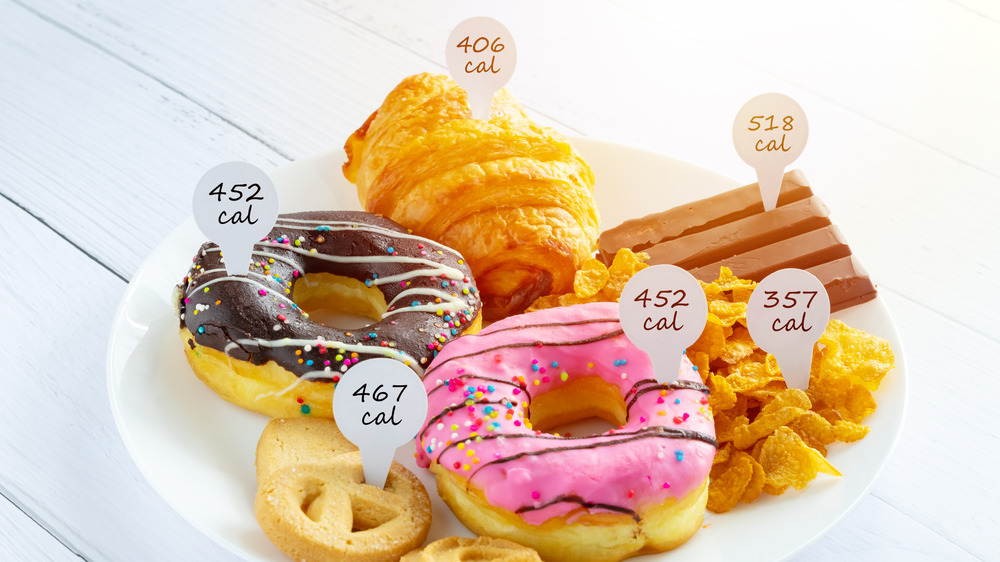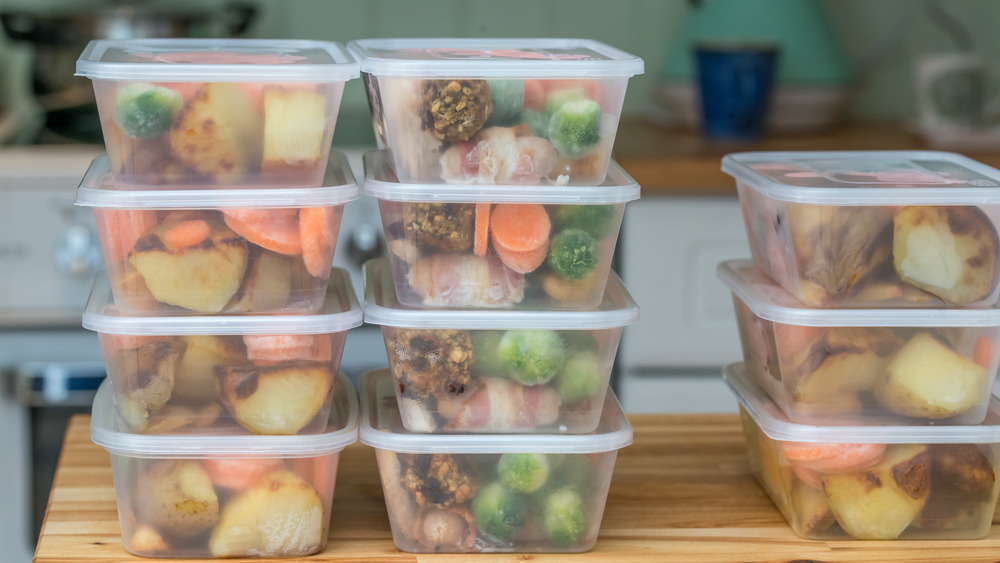The Reason Why You Shouldn't Eat 2,000 Calories Per Day
If you've ever looked at the nutrition facts on a food item or beverage you're about to enjoy, you've probably noticed that the label says, "2,000 calories a day is used for general nutrition advice." It's easy to interpret this sentence as meaning, "Our general advice is to eat 2,000 calories a day," but that's not actually what experts recommend, according to Sue Heikkinen, registered dietitian for the nutrition tracking app, MyNetDiary.
"This uncomplicated round number gives you a frame of reference to see how your favorite snack foods or restaurant meals fit [or] stack up," Heikkinen said in an interview with Mashed. "However, this value likely doesn't represent your actual calorie needs, nor was it ever intended to." That's right — the Food and Drug Administration, which oversees these labels, is not telling you to eat two thousand calories a day.
"Your calorie needs are based on age, gender, height, weight, and activity level, typically ranging between 1,600 and 2,400 calories for adult women and 2,000 to 3,000 calories per day for adult men," Heikkinen explained. "No wonder it's impossible for one value to reflect everyone's needs!"
What would happen if everyone ate exactly 2,000 calories per day
So, what if you do eat exactly this many calories every single day? You could actually gain weight pretty quickly, depending on your size. "If you are an inactive 55-year-old woman, eating 2,000 calories daily would almost always lead to weight gain, given that your needs are closer to 1,600 calories," Heikkinen said. This wouldn't be the case for someone much larger, younger, or more active, however. "On the other hand, if you are an active 25-year-old man, 2000 calories may feel like starvation, given that your needs are closer to 3,000 calories," she explained.
The numbers on labels can also make it hard to figure out whether the foods you are eating, indeed, are satisfying the minimum daily requirements your body needs for protein, fiber, carbohydrates, and other nutrients. "Adding to the confusion, the Percent Daily Value on food labels for some nutrients, such as fat and fiber, is based on the referenced 2,000 calorie diet. If your calorie goal is only 1,600 calories, foods will provide a higher percentage of your daily target than what is shown on the label," Heikkinen warned.
If all of these numbers are overwhelming, fret not. "You can find basic calorie estimates from resources such as ChooseMyPlate.gov and tracking apps like MyNetDiary, which will also calculate your calorie and nutrient goals based on your age, gender, height, current weight, activity level, and weight goals," Heikkinen said. In essence, it's best to look into an eating routine that feels good and works well based on your lifestyle and body type.

